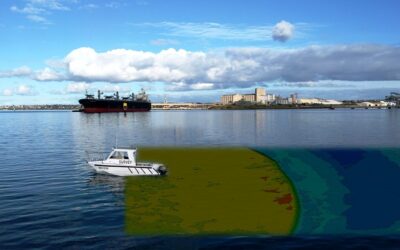Water bodies like oceans and seas form an immensely eminent part of our ecosystem. It is a well-known fact that they cover 70% surface of the planet. They play impactful roles in affecting the air we breathe, the food we consume, and the regulation of the weather and climate of a place. Not only that, but the extensive marine system also forms a source of employment for many people and provides transportation facilities. Moreover, the water bodies also influence mineral accessibility, economy, and defense disposition of the country. Thus, it is necessary to study the water bodies for the quality of our survival and preservation of the biome. But with such an endless number of effects that the water bodies pose, a majority of these remain mysterious and unchartered regardless. If you wish to explore it deeply you can choose a career as Hydro-Surveyor. Let’s know Hydrography and scope of Becoming a Hydro Surveyor
What is hydrography?
The study of underwater topography, also technically called hydrography, is a part of industrial science and technology that studies and geo-maps the oceanic floor and coastal areas. Hydrographical research is crucial to understand the various aspects of the aquatic system. It involves detailed and empirical exploration to determine the land profile of the ocean and measure the water depth. The valuable data acquired from the studies conducted by hydrographers serve as the mainspring for other developmental fields of computation and applied sciences. Ocean exploration is quintessential as it also leads to better resource management and sustainable socio-economical development of the country.
What does a hydro surveyor do?
Hydro-surveyors specialize in observing, configuring, mapping, documenting, and maintaining databases related to aquatic terrain. This collected data from the survey is for updating nautical charts and making sea-floor spreading models. It helps hydro surveyors to make predictions about the tidal range and cope better with ocean hazards like tsunamis and hurricanes. Nautical research vehicles equipped with instruments like hydrophones and echo sounders assess sea depth, water currents, oil reserves, and mineral deposits. With this information, hydrographers also analyze possible obstructions on the seabed and channel waterways for marine transport. Radars, satellites, autonomous underwater vehicles (AUVs), and research vessels are also some technologies availed by maritime agencies and organizations that carry out the survey.
Thus, hydrographers are making waves in experimental and geophysical research, engineering, and innovations, therefore contributing to the betterment of society and the environment.
How doone become a hydro surveyor?
Aspirants seeking to pursue hydrography as a career option need to acquire a diploma or a bachelor’s degree in applied sciences and engineering, specializing in any of the following categories
- Machine learning and automation
- Cloud Computing
- Electronics and telecommunication
- Environmental engineering and biotechnology
- Topology and physiographical navigation
Along with the completion of undergraduate and postgraduate university courses, one can also apply for internships to get more exposure regarding the chosen field.
One can also avail of apprenticeship training to make their way into the industry. After certifying the required qualifications and skills, one studies from college or other training institutes while working under a hydrographic specialist.
Scope of becoming a hydro surveyor
Making a career working as a hydro surveyor is a demanding job. Entrants in hydrography earn a decent salary, ranging from anywhere between $22,000 to $24,000. However, with higher training and work experience, one can land up with an annual salary package starting from $61,000, all the way to $82,000. With the training and work skills acquired from internships or apprenticeships, one has several job opportunities at naval or military organizations, government and private agencies, research institutes, and surveying and mapping companies.
Final Words…!!!
Ocean exploration induces a thirst for knowledge and curiosity for exploring. Sea literacy inspires young minds to break barriers in science and research technologies. This field has the power to benefit the nation on a Social, Economical, and Military level while setting the stage for career opportunities for current and future generations. Therefore, there is limitless Scope for Becoming a Hydro Surveyor.








